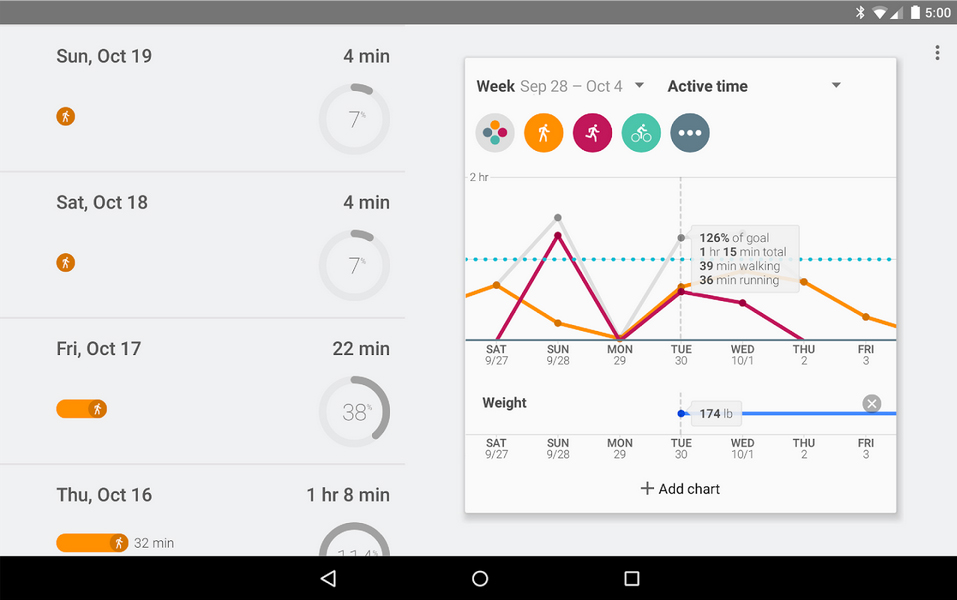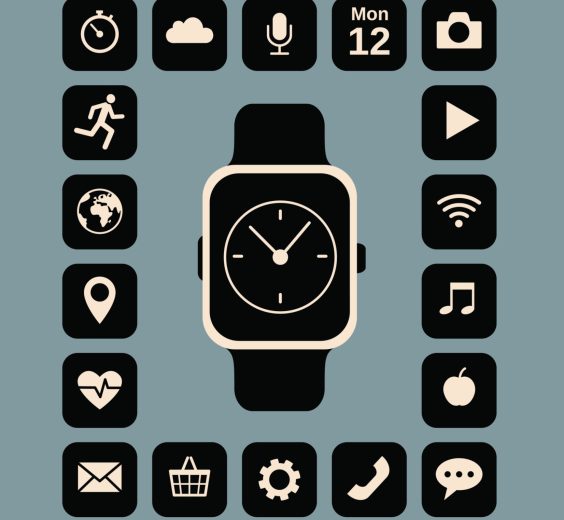Big Data, the Internet of Things, and wearables. These are the three areas of present and future technology that seem to be gaining more interest within investment plans. In the case of wearable devices, forecasts indicate that they will generate a turnover of around 19 billion dollars in 2018, primarily in three sectors: e-health, sports and gaming. Currently, most prototypes are being developed to improve our quality of life or to enjoy new sensations.
Big companies such as Google, Apple, Samsung and Microsoft have already taken advantage of the enormous possibilities of the health sector and are actively involved in the development of devices to monitor and improve the quality of life of people. In many occasions they are doing so hand in hand with developers who also understand that wearables are an opportunity for business development.
e-health and sports, the chessboard of technologies
Google launched in October Google Fit, an application that allows users to monitor their fitness data. Users can create their own profile and customized plans to control their weight, and all this with a simple and dynamic interface. In addition, Google Fit generates graphs to understand this data more quickly.
The most interesting aspect of this service is that it’s an open platform. Google allows developers to create applications and devices based on the platform’s APIs. In fact, the company has already announced the Google Fit Developer Challenge, an event which will take place in February 2015 and where developers will be invited to create applications using the Google Fit technology that can be launched later in the Google Play app store.
Apple has a similar proposal to Google Fit called HealthKit, an application that measures and monitors our health. The idea is that users of Apple’s latest operating system can monitor their progress when practicing sports and use the cloud (iCloud) to store their medical information. Just like Google Fit, this service relies on a heavy graphic display in order to make fitness data understandable. This was indeed one of the major highlights during the launch of Apple’s latest mobile devices: the iPhone 6 and iPhone 6 Plus.

The power of Samsung
Samsung, which has become one of the most important players in the smart watches and medical bracelets market, has an e-health platform known as Digital Health Initiative. As in the case of Google Fit, this service is an open platform with which Samsung wants developers around the world to help create technology to measure and store the health data of users in a more accurate and robust way.
Within this effort, Samsung has developed Simband, a smart bracelet to collect medical data, and SAMI (Samsung Architecture Multimodal Interactions), that allows developers to access the APIs of open data provided by wearables based on Simband and improve them, create new ones, and develop new applications that enhance these products.
Personal Stories from Samsung on Vimeo.
Microsoft wants to do the same as Samsung
The fourth great player in the development of wearable devices and platforms for the health sector is Microsoft. Besides having its own smart bracelet, Microsoft Band, it also has its own cloud service where users can store health data, called Microsoft Health.
In this service users can download the data collected by the Microsoft Band, but also by other wearables devices. Besides, Microsoft Health is a platform where other e-health companies can store their data online. This is done, for example, by developers of other wearables or applications, and health and fitness companies such as Runkeeper, MyFitnessPal, Gold’s Gym and soon MapmyFitness.
But what happens with my health data?
Logically, the most relevant concerns regarding wearables that store medical data is privacy. Having a device that encourages you to lead a healthy lifestyle and practice sports is great, but not if that data is used in an unclear way. This is not only a concern among users, but also of the authorities. A recent information from Reuters revealed how the Federal Trade Commission (FTC) met with representatives from Apple to investigate the final use of the data accumulated by the HealthKit application and what can third parties do with it.
According to Reuters, a recent FTC investigation discovered that developers of 12 applications dedicated to health and fitness accessed private medical data of users in order to sell it to advertisers interested in their profiles. According to this information, Apple would be putting together a team of independent experts to analyze the protection of data in its HealthKit.
Wearables for gaming, more future than present
The entertainment industry, and particularly the videogames sector, has always been one of the spearheads of technological innovation. For this sector, especially for large firms, wearables can be a great opportunity to raise the level of entertainment and finally break the physical barrier, with games that combine sensations of the real and the virtual worlds, but far beyond a touchscreen: real players experiencing sensations that come from what happens in the videogame, thanks to the sensors of the wearables.
In this line of innovation, virtual reality devices are the best allies. Sony, one of the entertainment and videogames giants, announced in March its Project Morpheus, a prototype of a virtual reality headset for PlayStation 4 which is still being developed. The objective of the Japanese company is to increase the sense of presence, allowing players to feel “inside” the game and enjoy more realistic emotions. Facebook is also interested in this big business, after the purchase for 2 billion dollars of Oculus VR, the 3D company with the most promising helmet, Oculus Rift. The prototype might be in the market already in 2015 and, according to all experts, it can be the starting point of a new way of playing… and living.



























